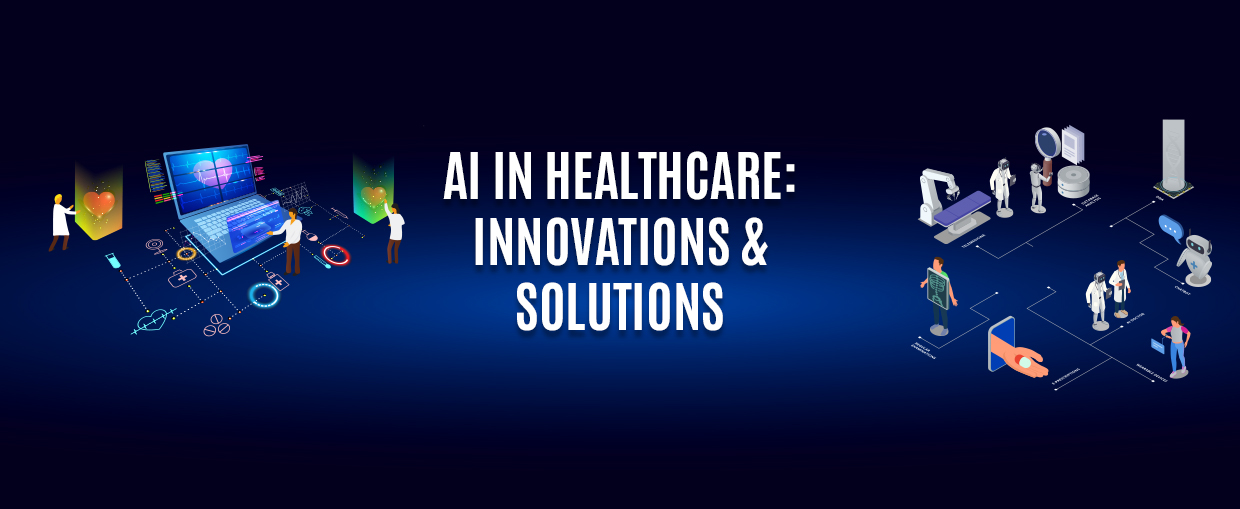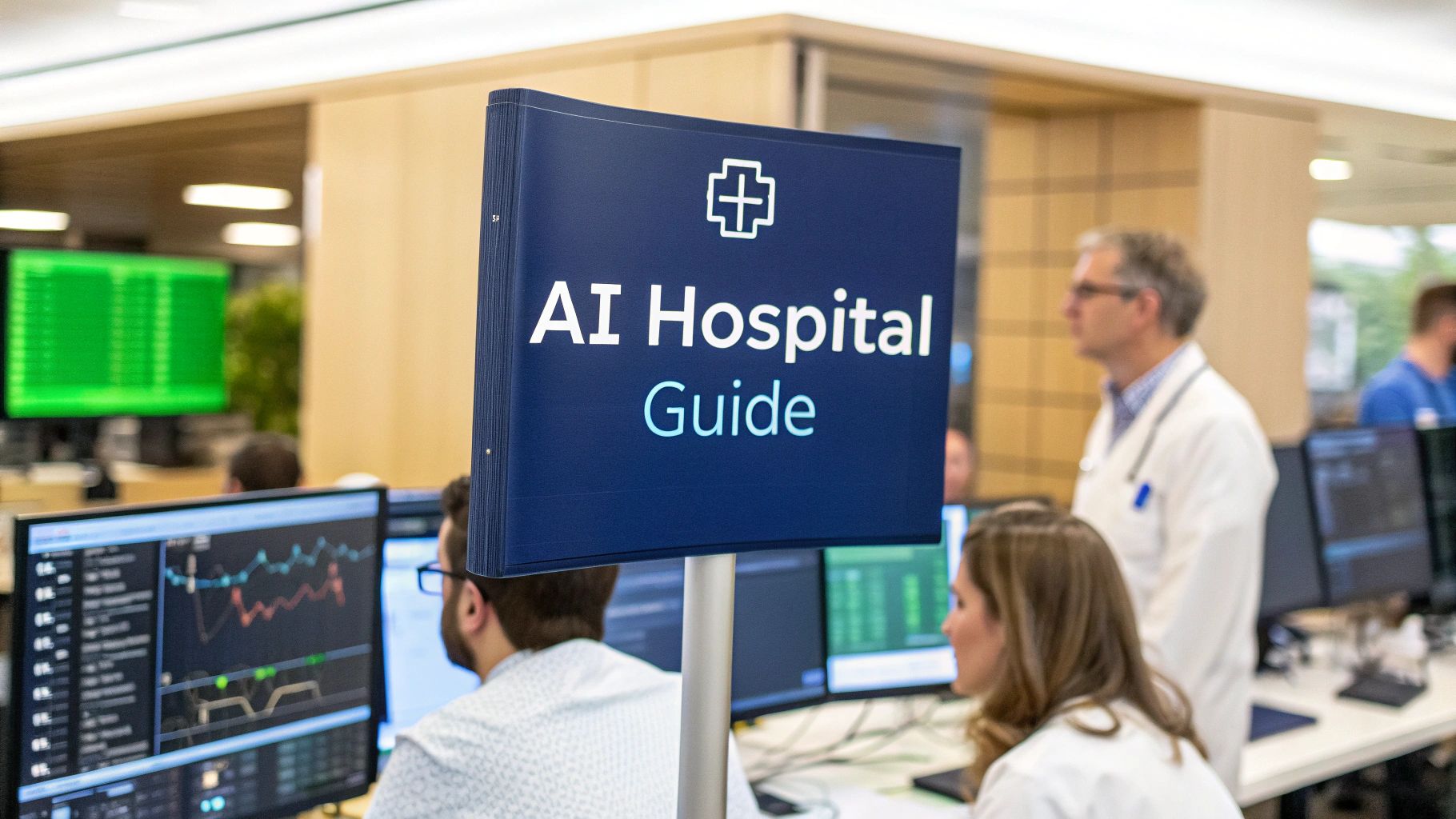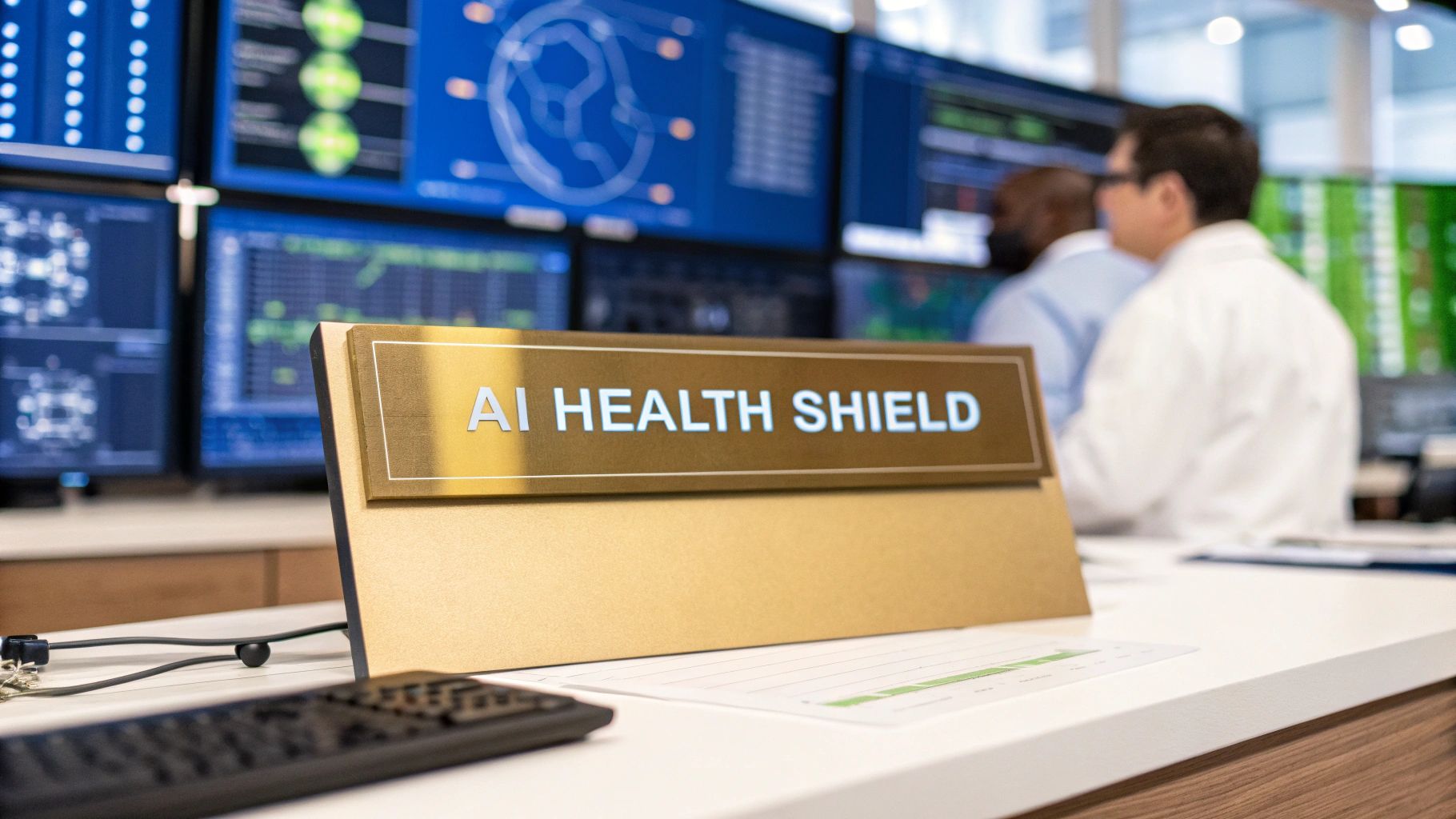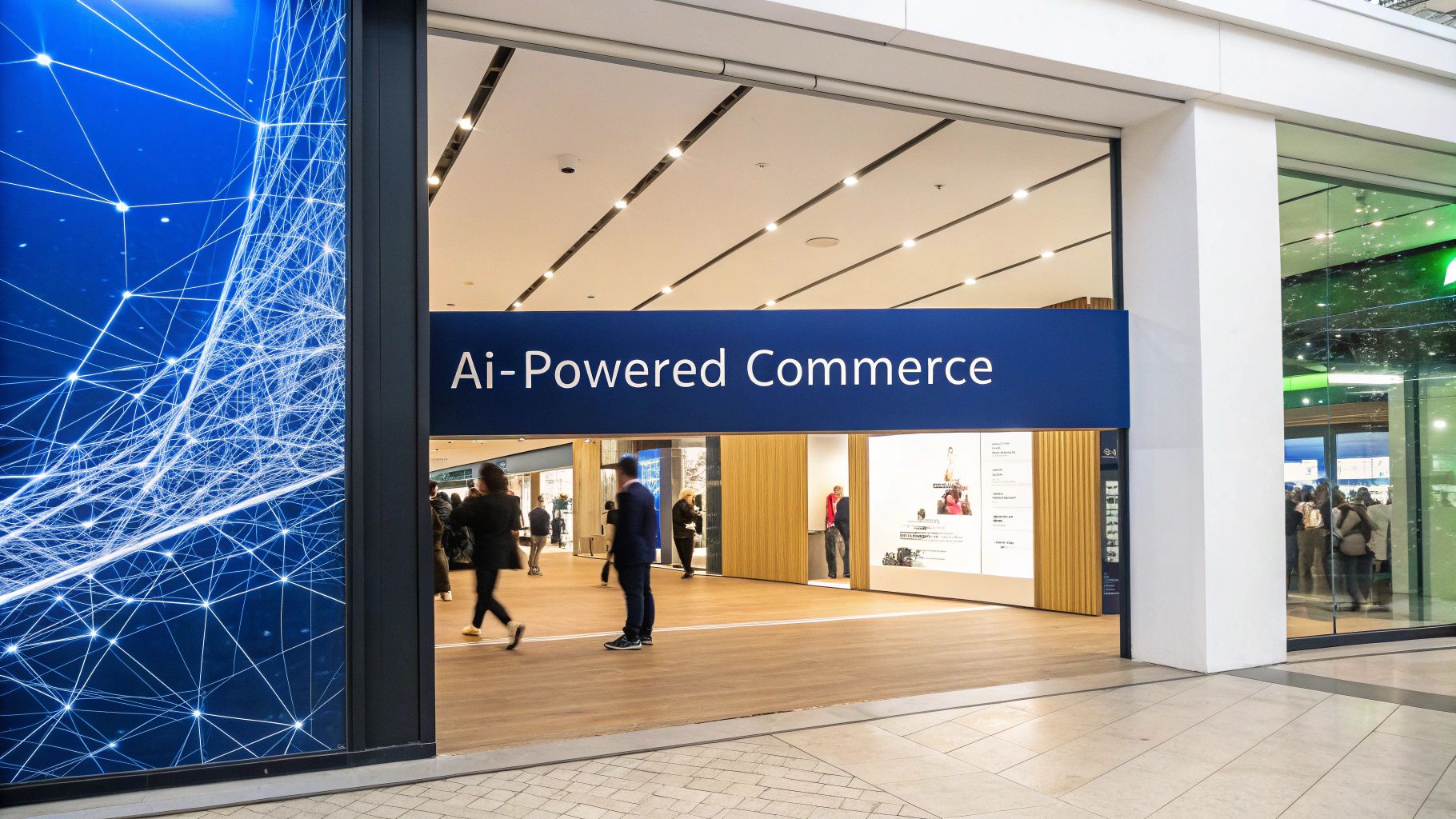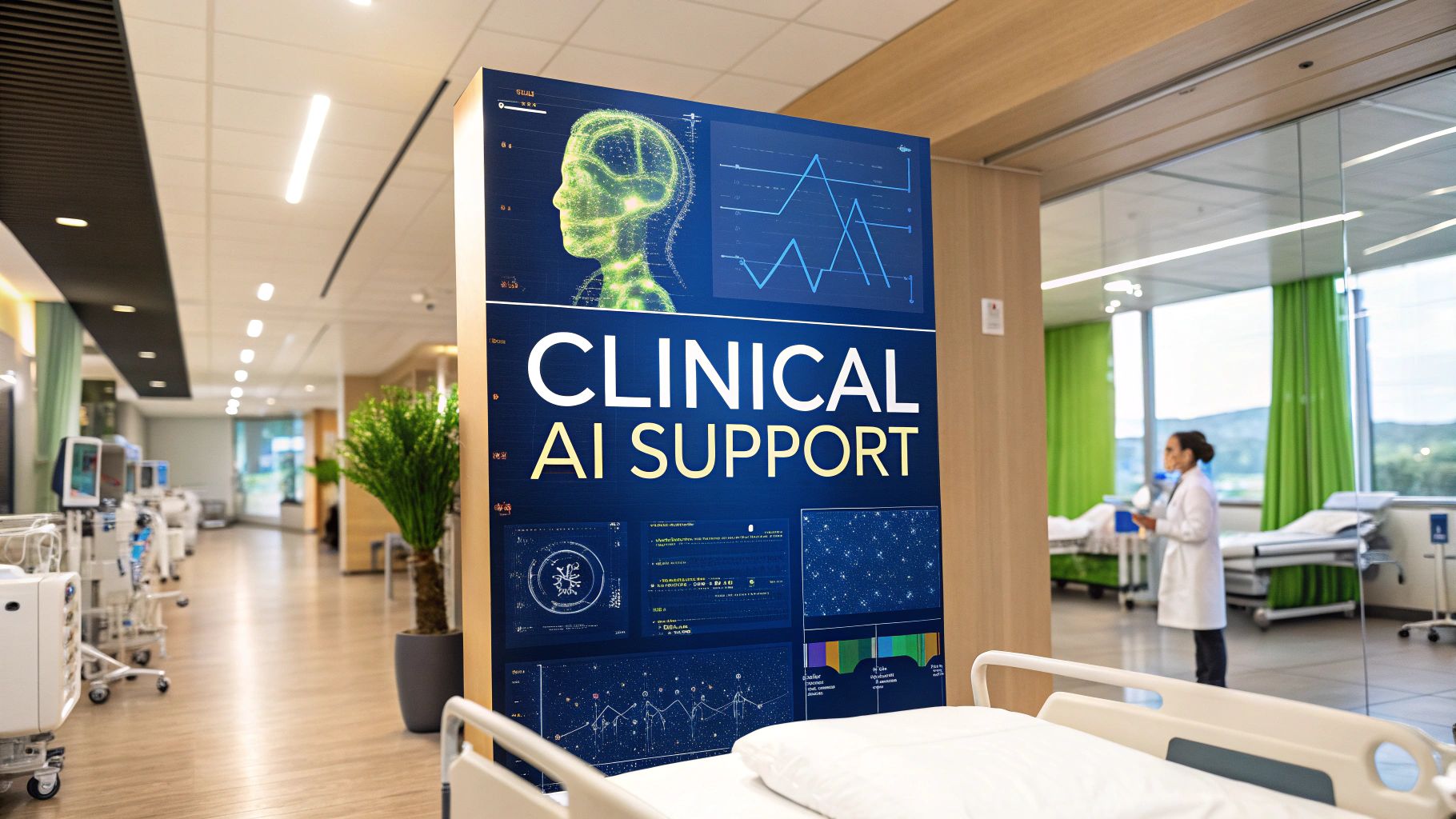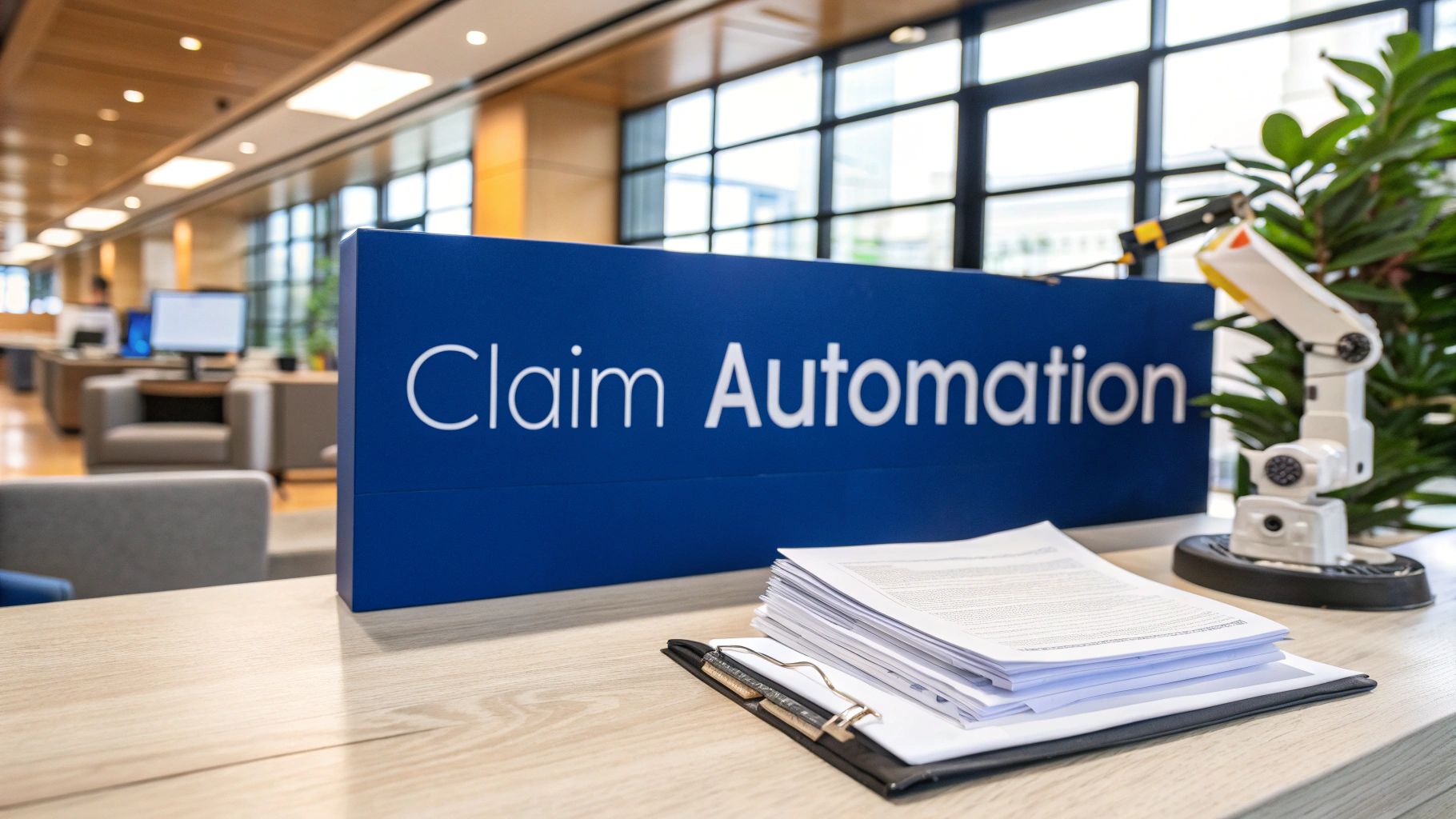Artificial Intelligence in healthcare is in the limelight now. From improving patient care to enhancing research and optimising hospital operations, AI technologies are increasingly shaping the way health systems function. While challenges remain, AI is demonstrating clear potential to improve both efficiency and patient outcomes across the globe.
Collaborating with an AI development company can significantly accelerate growth for healthcare enterprises. The following case-based findings illustrate why every stakeholder in the healthcare system should consider AI integration.
Enhancing Patient Diagnosis and Treatment
One of the most important applications of artificial intelligence in healthcare lies in diagnostics. Algorithms can now analyse complex medical images such as CT scans, MRIs, and X-rays with remarkable accuracy. In certain cases, AI systems are already outperforming human specialists in identifying patterns linked to conditions like cancer, cardiovascular diseases, and neurological disorders.
AI-powered diagnostic tools also help doctors detect illnesses at earlier stages, when interventions are often more effective. For instance, predictive models can identify patients at high risk of developing chronic conditions such as diabetes or heart disease. This enables proactive treatment plans, reducing both the likelihood of complications and the burden on health systems.
Beyond imaging, AI innovations are transforming personalised medicine. By analysing large datasets, AI can predict how individual patients will respond to different treatments. This allows clinicians to tailor therapies according to genetic profiles, lifestyle factors, and medical histories. The result is more effective care and reduced trial-and-error in prescribing medication.
Supporting Healthcare Professionals
The growing demand for medical services has placed immense pressure on doctors, nurses, and support staff. Artificial intelligence in healthcare offers tools to ease this burden. Virtual assistants, for example, can automate routine administrative tasks such as scheduling, documentation, and prescription refills. This frees up valuable time for healthcare professionals to focus on direct patient care.
In medical education, AI is helping train the next generation of clinicians. Intelligent tutoring systems provide personalised learning experiences for students, adapting content to individual strengths and weaknesses. Simulation tools driven by AI also create realistic clinical scenarios, allowing trainees to practise decision-making in safe environments before applying skills in real-world settings.
Improving Operational Efficiency
Hospitals and clinics are complex organisations where operational inefficiencies can delay treatment and increase costs. AI software solutions offer ways to streamline workflows through predictive analytics and automation. By forecasting patient admission rates, AI can assist hospitals in allocating resources, managing staff schedules, and ensuring the availability of critical supplies.
Another promising application lies in medical coding and electronic health record (EHR) management. AI development services can automatically extract and organise data from patient records, reducing manual effort and minimising errors. This not only improves data quality but also enhances compliance with regulations.
Expanding Global Health Access
Artificial intelligence in healthcare has the potential to narrow the gap between services in high-income and low-income regions. In parts of the world where access to trained medical professionals is limited, AI-powered diagnostic apps can act as a first point of consultation. Patients can use smartphones to capture symptoms or images, which AI systems analyse to provide initial guidance.
Telemedicine platforms integrated with AI further extend care to remote populations. Virtual consultations combined with AI-based decision support enable patients in underserved areas to access timely advice without travelling long distances. This is particularly relevant in low-resource settings, where healthcare infrastructure is often underdeveloped.
Accelerating Research and Drug Discovery
Drug development is traditionally a time-consuming and costly process. AI innovations are transforming this space by identifying potential drug candidates faster and with greater accuracy. By scanning enormous datasets, AI algorithms can uncover new molecular structures and predict their effectiveness in treating diseases.
During the COVID-19 pandemic, AI played a critical role in vaccine development and in tracking the spread of the virus. These examples highlight how AI can accelerate responses to public health emergencies and enable the rapid design of life-saving treatments.
AI is also reshaping clinical trials. By analysing patient data, AI can help select suitable trial participants, predict outcomes, and monitor safety in real time. This reduces delays and improves the chances of developing successful therapies.
Ethical and Regulatory Considerations
Despite its promise, artificial intelligence in healthcare presents several challenges. Concerns around data privacy and security remain significant, as AI relies heavily on access to sensitive patient information. Strong safeguards are essential to ensure compliance with regulations and to maintain public trust.
Another issue is bias in AI models. If algorithms are trained on incomplete or unrepresentative datasets, the results may be inaccurate or unfair, potentially reinforcing existing healthcare inequalities. Ensuring that AI systems are transparent, explainable, and accountable is critical to overcoming these risks.
Regulatory bodies are beginning to establish frameworks for the safe deployment of AI software solutions in healthcare. The European Union, for instance, is working on guidelines to ensure that AI applications meet ethical standards and deliver patient benefits. However, regulation must strike a balance between protecting patients and enabling innovation.
Looking Ahead
The future of artificial intelligence in healthcare is full of possibilities. Integration with robotics may support surgical procedures, while predictive models could anticipate disease outbreaks at a population level. As technology matures, AI will increasingly complement human expertise rather than replace it, enabling healthcare systems to deliver safer, faster, and more personalised care.
For health systems worldwide, the challenge lies in implementing AI responsibly while ensuring that its benefits reach patients across different regions and demographics. With continued investment from an AI development company in research, regulation, and ethical practices, AI can become a cornerstone of global healthcare transformation.
For organisations considering AI in healthcare, we provide guidance and solutions tailored to your needs.
